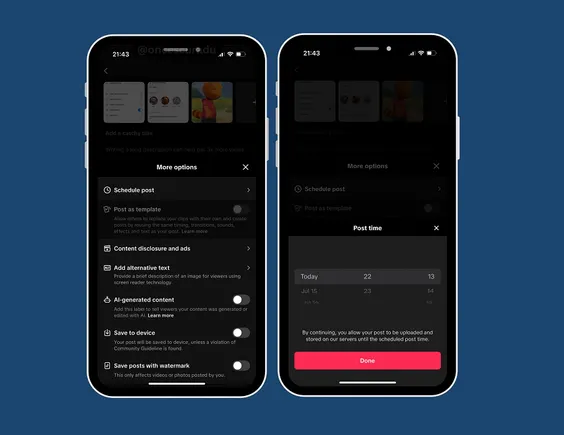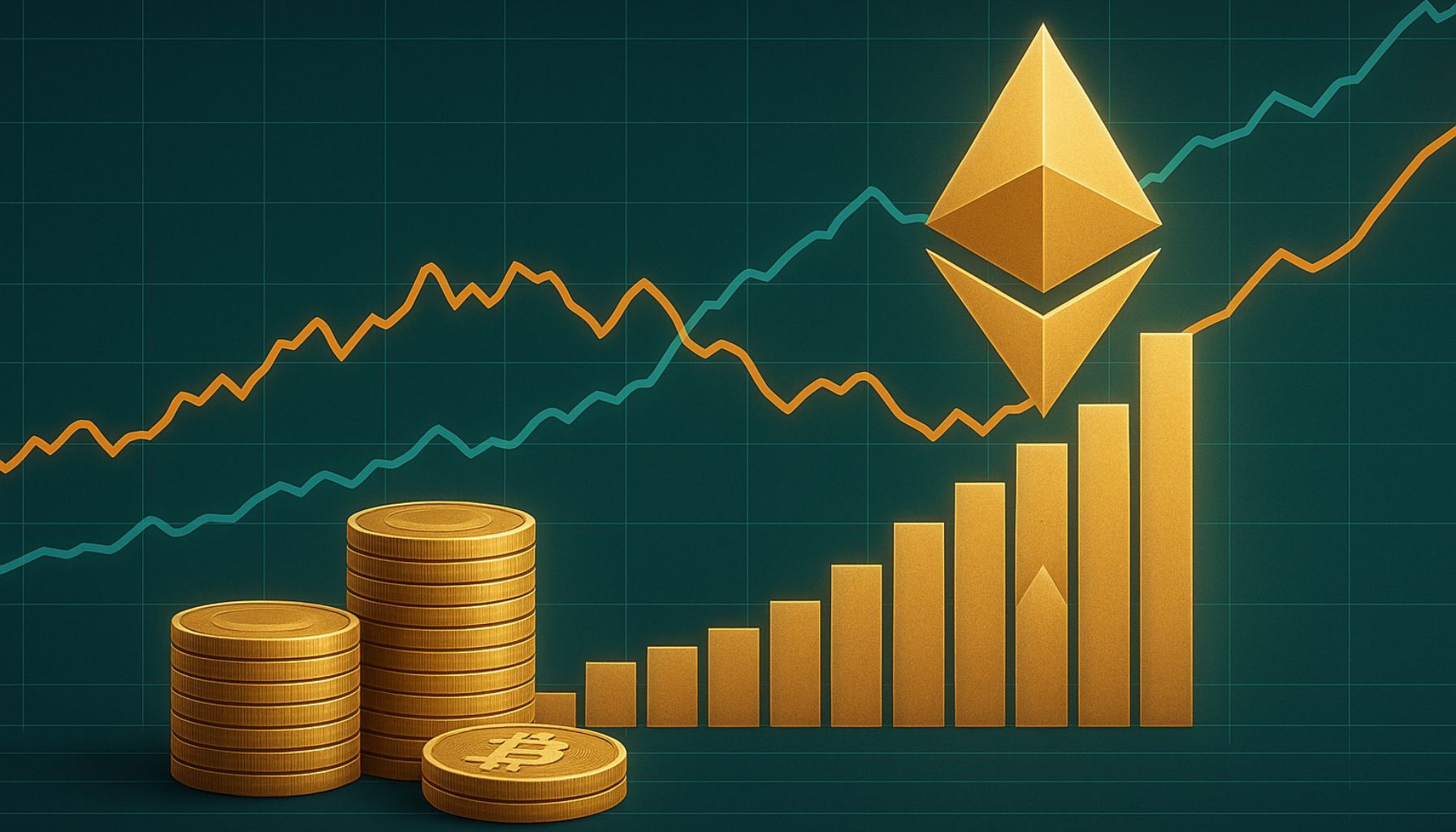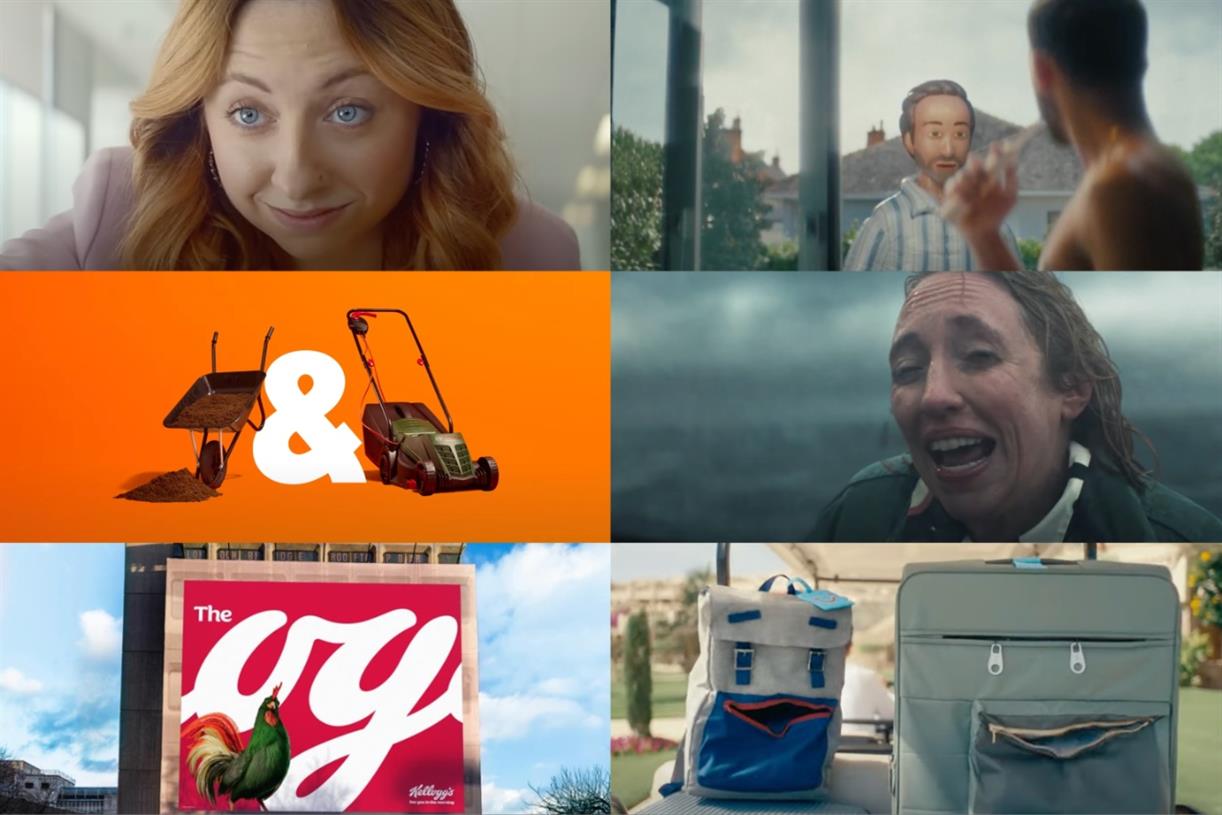How celebrity-owned agencies are managing the risks and rewards for brands
Here's why A-listers including Shaquille O’Neal, Reese Witherspoon and Tom Brady have started their own agencies, and what benefits and risks they bring to the ad industry.

A-list celebrities are taking over Madison Avenue. There's been a flurry of actors, athletes and other stars opening up their own ad shops as they see a unique opportunity to give brands the cultural insights they're craving that, arguably, only celebrities can bring to the table.
Idris Elba is one of the most recent celebrities to open a shop; in June he founded marketing and content firm SillyFace with Miroma Group Founder Marc Boyan. That same month, actor and former NFL player Terry Crews started the agency Super Serious with ad vets creative director Matt O’Rourke and producer Paul Sutton.
They join a long list of celebrities, including Reese Witherspoon, Shaquille O’Neal and Tom Brady, who have moved into the ad world over the past few years. Celebrity-owned agencies provide unique cultural insights, something brands are increasingly looking for from their agency partners. Some of these shops are also dedicated to helping bring more diversity to the predominantly white ad industry, and say they’ve been able to create more innovative and efficient ways of making ads thanks to having a Hollywood perspective on board.
But evaluating whether or not a celebrity-owned shop is a right fit for brands can be complicated. There are risks when tying a business to a big personality, especially one who is constantly in the limelight and has various other ventures that could get in the way of their ability to fully focus on client business.
Why celebrities are being drawn to advertising
To name a few of the other celebrity-owned shops:
Actor Kristen Bell started the creative and production shop Dunshire Productions last year. Rapper A$AP Rocky has an obscure creative agency, AWGE, which operates by the rule “Never reveal what AWGE means.” O’Neal, the NBA star, media mogul, opened Atlanta-based agency Majority with industry vet Omid Farhang in 2021. That same year, actor Michael B. Jordan started the marketing agency Obsidianworks with Nike veteran Chad Easterling. Witherspoon, the actor, co-founded the production company Hello Sunshine in 2016. Singer and music producer Pharrell Williams partnered with public relations firm Edelman to start the creative advocacy agency Mighty Dream in 2022. Paris Hilton co-founded 11:11 Media, an advertising, consulting, content creation and social media shop back in 2006. Brady, the former NFL quarterback, co-founded the creative studio Shadow Lion in 2017 to support his off-field media efforts. Skateboarding legend Tony Hawk co-founded creative and strategy shop D/CAL with Adam Wilson, Ryan Maconochie and Jared Prindle in late 2018.And who could forget Maximum Effort? Ryan Reynolds’ ad agency has gained a lot of attention for its absurd advertising since he co-founded it in 2018 with George Dewey. Some even see Maximum Effort’s acclaim and success as the impetus for the rise in celebrity-founded agencies.
Watch: Maximum Effort brings ALF back to TV in ads for brands
The Super Serious founders including Crews, who, much like Reynolds, is very involved in the day-to-day of his agency, told Ad Age previously that Maximum Effort inspired them to start their shop.
“Celebrities are carving out a niche within the agency and production realm by capitalizing on their extensive networks and unique personal intellectual property to scale these nascent businesses swiftly and effectively,” said Scott Bradfield, managing director of The Many Studios and former VP of content at Red Bull Media. The Many is one of a growing cohort of ad agencies to launch its own entertainment unit—another trend showing how the lines between Hollywood and advertising are continuing to blur.
Read more: Ad agencies launch entertainment units
For example, Reynolds bolstered wireless company Mint Mobile, which he has a stake in and sold to T-Mobile for $1.35 billion this year, through ads that featured him. “Given his stature, the typical cost for his participation would be prohibitive, but his position allowed him to bypass these costs,” Bradfield said.
The “Deadpool” actor even launched one Mint Mobile ad “ingeniously timed to coincide with his ‘Deadpool 3’ announcement, enhancing the impact. This well-orchestrated move resulted in heightened awareness and publicity that a non-celebrity could not have achieved,” Bradfield said of the ad, which was created using ChatGPT.
In a world where consumers are increasingly able to block digital ads and buy ad-free streaming subscriptions, there is an obvious reason brands would seek the help of A-listers from Hollywood to try to grab consumers’ attention.
But why are celebrities interested in advertising and specifically in owning and running their own agencies?
For some, it’s about being able to express their creative freedom.
D/CAL started after Wilson, the former director of brand marketing for outerwear company Carhartt and executive creative director of Mcgarrybowen, mocked up a fake press release announcing the agency’s founding with Hawk’s participation. Wilson then sent it to the skateboarder in the hopes Hawk would have some interest in actually starting a shop with him.
As luck would have it, Hawk did.
Hawk said the pitch, “which was very cool and spoke to [Wilson’s] creativity,” made him realize that he’s always been on the other side of the marketing equation, as the talent, and he never got as much of a say in the creative he was involved in as much as he would have liked.
“I was intrigued,” Hawk said. “I always felt like it was hard for me to have the input into the creative a lot of the time because I was dealing with established agencies that didn't really want to hear your take on it because they had gone to college to learn how to do this. My education was more in the streets and I felt like I could lend authenticity and experience to it.”
D/CAL is particularly adept in crafting nostalgia content and brand refreshes.
Take Bagel Bites, for which Hawk was condemned as a “sellout” for endorsing in 2002, before it was standard practice for celebrities to do brand deals. Hawk hilariously doubled down on his 2002 endorsement during a mock broadcast interview in a 2019 Father’s Day ad for the popular snack that soared to popularity in the 1990s, targeting its core audience, who are now dads.
“That was definitely a tipping point,” Hawk told the fake journalist in the ad, while taking a bite out of a Bagel Bite. “That’s when I decided, if I genuinely like a product, I’m not going to apologize for endorsing it.”
Look back: Bagel Bites reunites with Tony Hawk
Last year, D/CAL and Hawk also helped relaunch Gibson Guitars’ electric guitar effects pedals maker Maestro, a brand that’s been powering songs from famous music artists including Jimi Hendrix and The Beatles since 1962.
Much like skateboarding, the world of guitar pedals is “a subculture of subcultures,” Wilson said. “You're talking to people that know everything there is to know about this thing you're about to relaunch.”
That’s why Hawk’s expertise was so critical to that campaign in particular.
“Skateboarding is still considered alternative extreme action,” Hawk said. “So, when you want to include skateboarding [in ads], you have to do it, you have to be savvy and you have to be authentic. Someone that just studied advertising doesn't have those nuances.”
Brands are increasingly seeking these types of cultural insights to which celebrities provide access.
That was the thinking behind Apple’s Beats by Dre partnering with Rakim Athelaston Mayers, better known as A$AP Rocky, and his creative agency, AWGE, to star in and direct an ad in which the rapper goes on an epic diaper run set to the tune of “RIOT (Rowdy Pipe’n),” a new song off his album, “Don’t Be Dumb.”
“A$AP Rocky has been a fan of Beats for years, and vice versa, so there is natural synergy,” Beats by Dre Chief Marketing Officer Chris Thorne said. “He is a creative at his core, and that manifests in the level of care and detail he puts into his work. For us, we find value in the fresh perspective and hands-on collaboration with our partners. Their celebrity is a bonus."
Helping to bring more diverse voices to the industry
The ad industry has a history of doing a poor job recruiting and retaining diverse talent, and some celebrities are out to remedy that.
A recent report from the 4A’s, the industry trade group, found that the number of agencies owned or run by white CEOs jumped to 90.2% in 2022 from 73% in 2021, and the majority of all agency employees (64.6%) in 2022 were white.
Farhang, former chief creative officer for Momentum Worldwide, enlisted the help of the NBA great O'Neal to start Atlanta-based Majority, whose employees are 75% people of color and LGBTQ+. The actor Jordan co-founded Obsidianworks with Easterling to foster more authentic storytelling of people of color within advertising. The singer and producer Williams started Mighty Dream with Edelman to “produce creative work that solves challenges facing communities of color through social action campaigns, product development and policy change,” according to the agency.
Also read: DE&I efforts to know about now
An executive of one Black-owned celebrity agency, who spoke on the condition of anonymity, said they left big holding company agencies because of the lack of representation of “Black and brown talent.” They said a lot of top diverse executives are doing the same.
Farhang said he pitched his idea to create an agency that employs multicultural talent doing “general market” work “to anyone who would listen.” After his original plan to get backing from an established agency fell through, his brother, who has directed O’Neal’s commercials for 10 years, introduced him to the basketball Hall of Famer who was receptive to the idea, he said.
“I came to learn Shaq had a similar ambition of his own for an Atlanta-based agency, but the only thing he was missing was the right partner. So, kismet,” Farhang said.
O’Neal, speaking on the “Talking To Ourselves” podcast with Farhang, said he always liked the idea of being the “first” at doing something, stemming from his ambition to be the first “big” basketball player (which is what it sounds: a player who is large and typically is positioned near the basket) to land a brand deal (of which he has many now).
More news: Shaq talks AI, memes and The General's brand refresh
So, O’Neal, who is 7-foot-1, liked the idea of launching an agency comprised of multicultural talent that does what is called “general market” work—campaigns targeted to the “general” public versus campaigns that target multicultural audiences. That model is rare, as many big brands only hire multicultural agencies to do multicultural work.
“The fact that nobody's doing this, me and you are going to jump on board. And that's why I'm your partner,” O’Neal said on the podcast. “I would like to see our people get similar opportunities. Just the same opportunities. I know it's been a good old boy business for a long, long time. And that has to stop.”
Diversity is also a business advantage. Brands increasingly want to work with diverse agencies and teams, and it’s been proven that companies that prioritize diversity are more profitable. A 2023 McKinsey & Co. report found that there is $2 billion in potential revenue for businesses that broaden financial inclusion efforts for Black Americans.
Procter & Gamble, which declined to comment for this story, is one such company that has been calling on its agency partners to improve their staff diversity. The consumer packaged goods giant recently started working with Kevin Hart and his agency LOL Studios on its Old Spice “The Writer’s Room” campaign.
“This partnership is helping Old Spice grow the personal care market, and the Black-owned and operated media market, where P&G brands have already doubled spending and intend to double again and further expand the market,” P&G Chief Brand Officer Marc Pritchard said of the LOL Studios partnership during a speech at the Cannes Lions International Festival of Creativity in June.
Cannes news: Pritchard on pushing growth, judging and more
Of course, there is one demographic sorely lacking representation in this celebrity-owned agency category: Women.
There are far more agencies founded by male celebrities than female ones.
There is Bell's Dunshire Productions, which the actor founded last year with director-producer Morgan Sackett; director, producer and editor Dean Holland; Troy Bailey, the founder and CEO of talent agency Bailey Brand Management; and designer and creative director Benjamin Hart. Hilton, the pop culture phenomenon, has had 11:11 Media, a media and advertising company, since 2006.
Plus, Witherspoon co-founded Hello Sunshine in 2016 and the media company in March of this year launched a social agency, Solar, which has worked with marketers including Hulu, General Mills and AT&T. Actor Issa Rae also launched a brand marketing division within Hoorae, her media production company, this year.
Look back: Witherspoon stars in spot for Hello Sunshine and AT&T
Maureen Polo, Hello Sunshine's head of direct-to-consumer and a former WarnerMedia executive, said in an email that one of Witherspoon's “first priorities” for her, when she started in her role 18 months ago, was starting an in-house agency “dedicated to working with brands that wanted to build meaningful, positive and long-lasting relationships with women.”
“Our mission at Hello Sunshine is to change the narrative for women through storytelling that authentically represents women’s diverse backgrounds, experiences and voices,” Polo said. “Almost six years ago we set out to accomplish our goals by creating female-centered stories for television and film, but we believe that to fully shift the narrative for women, we need to move beyond entertainment to shift the commercial messaging too.”
Advertising consultant Cindy Gallop, founder of IfWeRanTheWorld and MakeLoveNotPorn, said the reason the ad industry hasn't seen as many female celebrity-founded agencies as male celebrity-founded shops is that there are also more male-founded agencies in general than female-founded ones.
Also read: Agencies owned or run by white execs jump to 90%
“Very simply, that phenomenon is a function of the fact there are many more agencies being started by men than women, and men reach out to male celebrities to partner with them,” Gallop said. “In a male-dominated, sexist, misogynist industry, men keep women down and destroy women's confidence so women don't conceive of starting their own agency as something they could possibly do. More women starting agencies would mean more female celebrity partners.”
Cornett president and owner Christy Hiler and Jean Freeman, principal and CEO at Zambezi, started Own It, an organization to track and increase the number of female-founded agencies, last year after the 4A's found that, of the 22,000 shops in North America, less than 1% are owned by women.
The value and risks of having a celebrity tied to your agency
Shadow Lion wasn’t built in the same way as some of the other celebrity-backed shops. The creative agency rose up pretty organically from its co-founder Gilad Haas supporting Brady in his media endeavors.
In fact, it all started with one social campaign in 2017 to promote Brady being the cover of EA Sports’ Madden NFL 18 video game. In a series of social posts, the football player denounces his team’s efforts to keep him safe (including literally putting him in a bubble) from the so-called “Madden Curse”—a superstition that suggests an NFL player would have a poor season if given the cover of the popular video game.
The Facebook posts for that campaign received the highest-ever engagement for Brady at the time, making both Haas and Brady realize they had a bigger business opportunity.
“The Shadow Lion team was the first to help me see the value in having a social media presence early on and everything grew pretty naturally from there,” Brady told Ad Age in an email. “By 2017, it had evolved to a point where it was clear to all of us we had something special here that we should build a company around.”
Brady said that he never intended to start a creative agency but trusted Haas, who he has worked with for about 10 years, to build the agency that now “all of my other businesses and partnerships have benefited from.”
“There was an increasing need to creatively support my partnerships off the field, and the Shadow Lion team consistently over-delivered, creating some of the highest performing (and most enjoyable to shoot) content and campaigns I’ve been a part of,” Brady wrote. “I’m so proud of how the company and team has grown since 2017.”
Now Shadow Lion works with brands including Hertz, as well as other athletes.
Haas said he sees several benefits to having Brady as a co-founder and partner of Shadow Lion, and they really boil down to how the agency is operated.
Starting with the Madden 18 campaign, Haas said the agency makes quality content in about 45 minutes, versus the eight- to 10-hour commercial shoots to which most celebrities are accustomed. The efficiency caters to the busy lifestyles of athletes, but brands benefit from it, too.
This efficient model is what attracted Hertz to Shadow Lion.
“What started as a Hail Mary production ask has turned into a completely integrated partnership across multiple facets of our organization including creative, production and social media,” Hertz VP of Brand Marketing Stefanie Dillmore said. “The team is made up of experts in their fields, remaining at the forefront of creative and content trends and allowing us to always stay ahead of the curve. Beyond expertise, they bring a balance of speed and quality that is unmatched. Shadow Lion is a true ‘Swiss army knife’ agency and one-of-a-kind partner.”
Having Brady attached to Shadow Lion also created a platform and visibility for the agency to work on larger projects, “just because Tom is a part of them,” Haas said.
Farhang said the same was true for Majority.
“Launching with no clients and no revenue, I believed the concept of Majority was newsworthy enough to get the attention of brands,” Farhang said. “But I also knew ‘guy you've never heard of dislikes boss, quits job to start new agency’ wasn't the most exciting headline. Shaq's greatest value-add to Majority was inviting permission to trade on his business prowess and fame, until we could establish a reputation of our own through our client work. He gave us the gift of a running start. We pay him back by cultivating fertile ground for a more diverse talent mix to do the best creative work of their lives.”
Having celebrities aboard can also bring in new business, as celebrities typically have connections with various brands.
“Celebrities bring notoriety to the agency brand, much in the same way they bring notoriety to brands they endorse,” Forrester Principal Analyst and VP Jay Pattisall said. “Some CMOs are more star-struck than others, which could translate into a competitive advantage for winning accounts.”
Wilson said none of D/CAL’s partnerships have been “handed” to the agency because of Hawk but “we've worked with some great clients because of introductions from Tony's side of the equation.”
Most celebrities also didn’t get famous by being lazy. Whether they’re a pro athlete, music artist or actor, they all have had to have a certain work ethic and drive that got them to where they are. It’s a work ethic that can help fuel ad agencies, too.
Haas said Brady’s on-field mindset has “permeated its way through our company. ‘Ego is the enemy’ is a tagline that we have at our company.”
Hawk, too, has inspired D/CAL’s employees to push harder.
“Skateboarders are inherently inventive and don't take no for an answer,” Wilson said. “Who else has an agency with a built-in reminder to just keep battling until you land the trick? That’s a benefit of having Tony involved in this. I've worked at a lot of agencies [and] brands and I can't say that [I’ve] had someone who inspires the organization simply by doing what they love to do.”
There are risks, too, with working with a celebrity.
Hawk said time management is his “biggest challenge these days.” But when he’s passionate about a project, he gives it his all. “We have scrambled to put together video pitches within 48 hours. Things I feel strongly about, I'm willing to adjust everything else around it,” Hawk said.
That’s primarily why D/CAL isn’t set up to revolve around Hawk—the agency gives him the freedom to contribute to a campaign when he wants to. The same goes for Majority, where O’Neal gives his creative input when he can and wants to, as well as Shadow Lion.
For celebrities, being selective about what they work on also lends to the authenticity of the project.
O’Neal, for example, said on the podcast with Farhang that he never endorses a product he didn’t already use.
“After my first championship, we got a call from the Wheaties people and I told my agent ‘no,’” O’Neal said. “Then my agent [asked], 'Can I ask why?' [I] said, 'I don't know what Wheaties taste like. We couldn't afford it. Call Frosted Flakes. Call Fruit Loops. I want to be on those boxes.’ ‘They're not interested.’ ‘Cool.’”
With an agency like Reynolds’ Maximum Effort, where the celebrity is very much the heart and soul, there could be more risks.
Farhang said celebrities should be wary of starting an agency if they’re not invested in it wholeheartedly. “Some think they can do what Ryan Reynolds does, only to learn they're not about this life,” he said.
“The most important thing is that the role of the celebrity is defined upfront, whether it’s creative auteur or passive investor,” Farhang added. “So that when the PR dust settles, a real actual business remains. Otherwise, it’s a novelty posing as an agency.”
Celebrities are also always in danger of damaging their reputation, being that they’re always in the limelight, which could prove risky for a business, Pattisall said.
“When an agency rests its fate with a celebrity spokesperson (just like brands) they are susceptible to all the positives and negatives of the celebrity,” he said. “All it takes is one indiscretion with a spokesperson or influencer to harm the equity of the brands they endorse or create content for.”
Still, Pattisall said the ongoing Hollywood writer and actor strike will likely fuel more celebrities to go into other industries including advertising so we could see even more of these shops pop up.
“A-list Hollywood talent will be looking for revenue projects,” he said.
It’s also hard to evaluate the success rate of celebrity-owned agencies.
“It’s difficult to determine the profitability of celebrity-owned or affiliated agencies because they are often private entities or owned by private entities,” Pattisall said, adding that holding companies also “don’t break their revenue out by operating agency.”
Some of these celebrity-owned agencies are owned or partially owned by larger agencies and holding companies including Majority (WPP took a 30% stake in the shop in June), Obsidianworks (which is integrated with Endeavor’s 160over90), Mighty Dream (part of Edelman) and Hello Sunshine (which is majority owned by Candle Media).
Ed Horne, president of 160over90, said Obsidianworks brings a lot of value to 160over90. “We believe it shows our clients and brands that we not only are culturally connected but we also are in the thick of these important conversations right alongside them. Michael’s name recognition helps get us in the door, and then our strategy, unique perspectives, and ability to connect brands and culture keep us there,” he said.
Pattisall said “large creative networks are not the profit centers” for holding companies, in particular, so likely these celebrity-owned agencies aren’t either.
Spike DDB is one of the oldest celebrity-owned shops. The Omnicom Group-owned DDB network agency, founded by filmmaker Spike Lee in 1997, was once a thriving, lauded shop, creating high-profile work in the early 2000s for organizations including the 2007 Oscars. It works essentially independently of Omnicom and the DDB network.
Also read: Spike Lee is skeptical of AI's role in creativity
An employee who worked for the agency from 2015 to 2017 and spoke on condition of anonymity said, “when I was there, [Lee] was the first man in the office every Monday and his attention to detail and culture were unmatched.”
Spike DDB doesn't publicize its work as much as it once did a decade or so ago, but it's still in operation. Its biggest client is Cadillac, for which it does multicultural work, and Lee is still very much involved in the creative direction of the agency, overseeing every piece of work before it goes out, said Natasha Williamson, senior account director of Spike DDB.
“We're small but mighty,” Williamson said, adding that the agency currently has 11 employees. “We pride ourselves on being great storytellers; that comes down from Spike.”

 UsenB
UsenB 






























